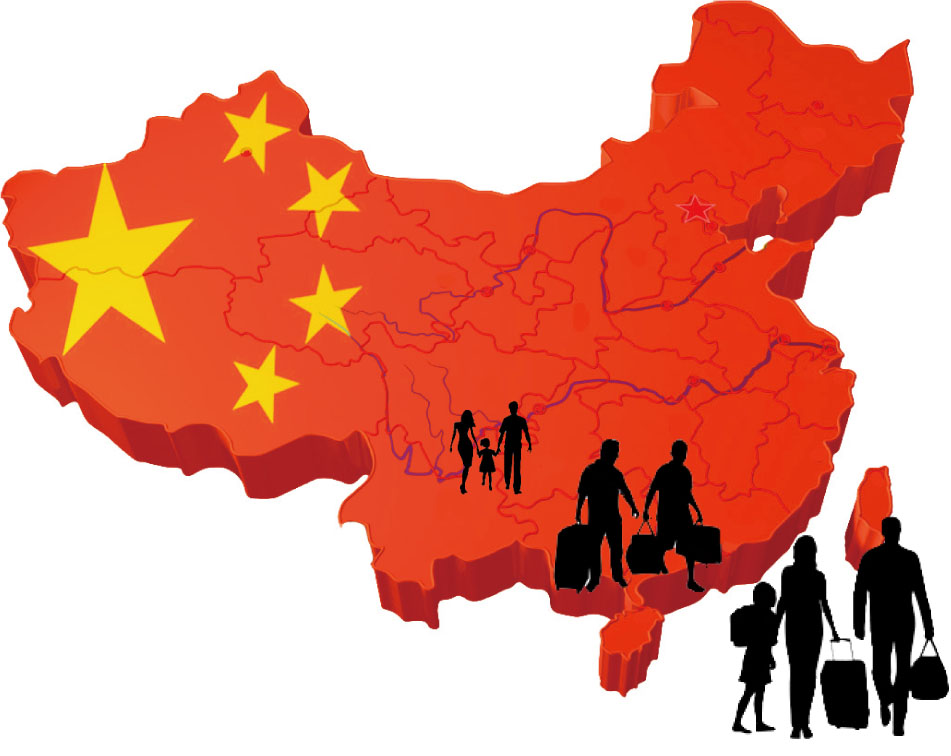Hong Kong identity no longer an ideal for migrants from the mainland
Reporters: Carmen Shih and Gienne Lee
Lei Ching-yee and her husband Wong Chung-ping still remember what people called them when they first came to Hong Kong in the 1980s. “Ah Chan” was a generic term for mainlanders, derived from a character from the mainland in a popular TVB soap opera of the time.
Lei and Wong may have been living among other Cantonese speaking people of Han Chinese descent, but their neighbours had constructed another identity for new immigrants such as themselves. They were seen as industrious workers, but also as bumpkins who did not fit in fast-paced Hong Kong.
Lei arrived in Hong Kong in 1980, Wong a year earlier. Both had come to Hong Kong illegally from Dongguan in Guangdong province. At the time, the colonial government had a policy which allowed immigrants from the mainland to settle in Hong Kong if they managed to reach the urban areas of Hong Kong and had a place to stay.
They were both in their twenties and had come in search of a better life. Lei says there was not enough food to eat at home in Guangdong, and they survived on sweet potato peel. But relatives from Hong Kong often brought her a lot of gifts and beautiful clothes. She decided the city must be a better place to make a living and expected she would have a shining future if she made it there.
The reality was different. After her arrival, she realised Hongkongers were not as rich as she had imagined. The family she stayed with in Ping Shek Estate were crowded into one small room. Her relatives could not afford air-conditioning and made do with a fan. Children in the family slept on the floor as there were not enough beds.
Still, Wong and Lei got jobs in the factories and settled in the city. Some locals regarded the new arrivals as competitors in the job market or looked down on them. But Lei says people were friendly on the whole. “They did not bully us because we were mainlanders,” she says.
Now, after more than 30 years, Lei and Wong regard themselves as Hong Kong Chinese – their family is rooted here. Wong says he treasures the freedoms of Hong Kong. “In Hong Kong, if you work harder, you must have your reward,” he says.
Unlike Lei and Wong, who sneaked into Hong Kong, Bruce Chan Kwok-tung, a specialist in psychiatry, left Shanghai with his family in 1984 and settled in Hong Kong under the One Way Permit scheme. This was a controlled immigration scheme with a daily quota.
Chan says he had a hard time finding his identity at first. He was eager to become a Hongkonger and remembers saving his pocket money to buy a Walkman cassette player and music tapes. “By doing the same things as other Hongkongers, I felt like I was already fitting in,” says Chan. He is glad that he made a lot of good friends in Hong Kong who welcomed him into their social circles.
Chan, then a 13-year-old, made a big effort to integrate into his new surroundings. Immersing himself in popular culture, through television series and Cantopop, helped him to adapt. “I learnt almost all my Cantonese from TV series and Cantonese songs at that time.”
Even as he was striving to be a Hongkonger, Chan never forgot the fact that he was a Chinese. He is proud of being Chinese simply because China is where he is from. His clinic is furnished with Chinese furniture and decorated with Chinese calligraphy pieces.
Chan says his background as a mainland immigrant makes him more tolerant of the behaviour of mainlanders. He acknowledges there are differences between the behaviour of Hongkongers and mainlanders but he respects these cultural differences.
Chan describes himself as an amphibian, equally comfortable in Hong Kong and the mainland. This double identity gives greater flexibility in his dealings with his environment. “When I travel to Japan, I will identify myself as a Hongkonger as Hong Kong has a better image to Japanese and I can have better service,” he says. However, Chan believes that, on the whole, Hong Kong can no longer be seen as superior to the mainland .







































